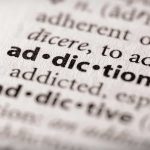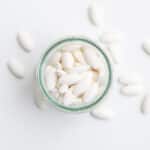Concerta is a brand name, extended-release stimulant medication containing the generic drug methylphenidate. It is used to treat attention deficit hyperactivity disorder (ADHD) and narcolepsy, and is the preferred medication for treating ADHD in children.
Concerta Drug Class
Methylphenidate falls under a class of medications known as central nervous system (CNS) stimulants, or psychostimulants. Stimulant drugs work by increasing neurotransmitter activity in the brain and elsewhere, triggering an overall increase in physical and mental activity.
More specifically, methylphenidate binds to dopamine transporter and norepinephrine transporter proteins and interferes with neurotransmitter reuptake. This increases the level of dopamine and norepinephrine that are active in the brain as long as the drug is present.
By increasing dopamine levels, ADHD medications like Concerta can help manage symptoms of ADHD in both adults and children, improving inattention, impulsivity, poor emotional regulation, more.
Concerta Drug Schedule
The FDA and DEA have classified Concerta and other methylphenidate medications as schedule II controlled substances under the Controlled Substances Act.
This means that Concerta is considered to have a high potential for abuse, with use potentially leading to severe psychological or physical dependence.
Opioid analgesics are also classified as schedule II drugs, as well as all other ADHD stimulant medications including:
- Adderall (amphetamine salts)
- Dexedrine (dextroamphetamine)
- Desoxyn (methamphetamine)
- Focalin (dexmethylphenidate)
- Ritalin (Methylphenidate)
- Vyvanse (lisdexamfetamine)
As a controlled substance, it is against federal and state law to possess or use Concerta without a prescription, or to distribute it outside the medical system. Penalties for doing so are strict and include prison terms and fines.
Side Effects Of Concerta
Stimulant therapy with Concerta can cause certain common side effects, like:
- anxiety
- decreased appetite and weight loss
- diarrhea
- dizziness
- dry mouth
- fatigue
- feeling irritable or easily annoyed
- headache
- hyperhidrosis (excessive sweating)
- increased blood pressure
- insomnia (trouble sleeping)
- nausea
- stomachache
- tics
These side effects often fade with time, though many patients ultimately try a variety of different ADHD medications before settling on the one that works best for them.
Concerta Abuse
As its classification suggests, this prescription medication is often associated with drug diversion, drug abuse, and drug addiction.
This abuse can occur for a variety of different reasons:
Euphoria/High
In high doses, methylphenidate can trigger a dopamine high similar to methamphetamine, another potent stimulant drug. This is especially true if the drug is crushed up and either snorted or injected, both of which greatly increase its rate of absorption and initial effect.
However, abusing methylphenidate in high doses greatly increases the risk of short- and long-term health hazards, including physical dependence, addiction, and overdose.
Academic Or Athletic Performance
High schoolers, college students, and young adults may take Concerta in order to increase their wakefulness, concentration, and energy level for a period of time, often to help study before exams or sometimes as athletic enhancers.
Weight Loss
Because appetite suppression and weight loss are well-known side effects of Concerta, the drug is sometimes taken in order to help with weight loss, often to an unhealthy or extreme degree.
Concerta Dependence & Addiction
While some level of physiological dependence may develop when Concerta is used therapeutically, this is far more likely to occur when the drug is abused in high doses for an extended period of time or without a prescription.
Concerta dependence can trigger uncomfortable withdrawal symptoms when a person stops taking the drug, potentially including mental health issues like depression, paranoia, fatigue, and other symptoms.
Concerta abuse can likewise lead to the development of addiction, or substance use disorder.
Concerta Overdose
Taking Concerta in high doses, through snorting or injection, or using it with other substances all greatly increase the risk of severe overdose symptoms, though an overdose can potentially occur with any misuse of this medication.
Symptoms of a Concerta overdose can include:
- nausea and vomiting
- tremors or convulsions
- abnormal or increased heart rate, breathing, and blood pressure
- high body temperature
- altered mental state
- psychosis (delusions, paranoia, and hallucinations)
- stroke, heart attack, or sudden death, especially in those heart conditions or defects
If you suspect a drug overdose has occurred, stay with the victim and immediately call 911 so healthcare professionals can help.
To learn about our prescription drug addiction treatment programs, please contact us today.
Written by
Northeast Addition Editorial Team
©2024 Northeast Addition Center | All Rights Reserved
This page does not provide medical advice.




